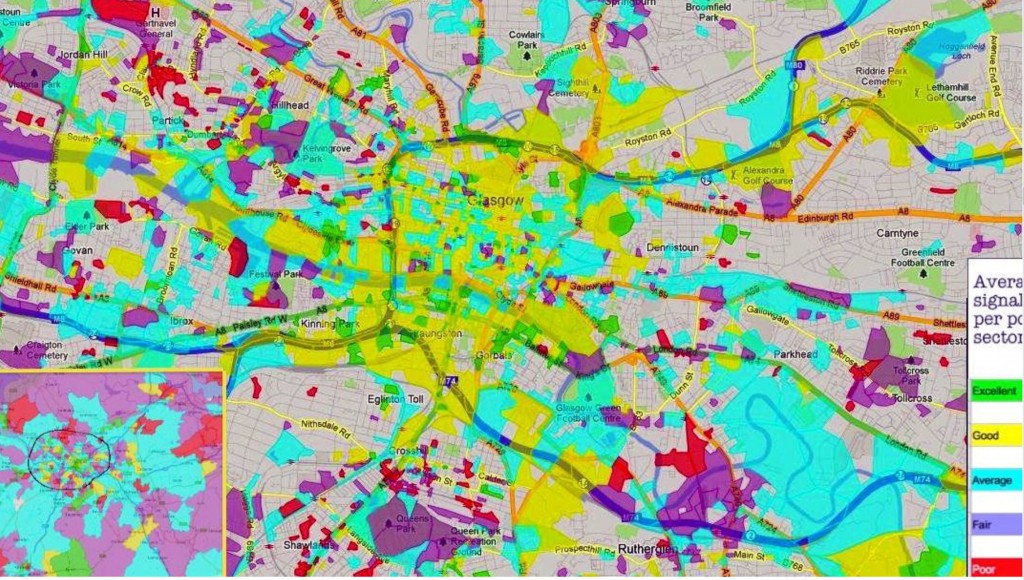A MOBILE phone map of Scotland’s two biggest cities has revealed shocking blackspots that leave thousands of Scots struggling to get a signal.
The “not spots” scattered throughout Glasgow and Edinburgh could help explain the frequent and sudden loss of mobile signals still suffered by customers in the country’s most built-up areas.
The maps were produced by researchers at Edinburgh University who admitted urban coverage was “much worse” than expected.

The Scottish Conservatives described the results as “very surprising” and warned that Scotland risked falling behind other nations in communications technology.
The maps of Glasgow and Edinburgh were built up from thousands of samples of 3G mobile phone signal strength and are colour-coded.
Around a third are coloured red or purple, meaning a poor or fair signal and insufficient for a good quality connection.
Even parts of Edinburgh’s busy West End – which is home to numerous banks and other businesses – contains purple and red areas of weak coverage.
And the city’s equally busy Leith Walk also contains numerous areas of “poor” reception.
The capital’s upmarket Morningside area, contains numerous “not spots” as does the area around Edinburgh University’s King’s Buildings campus and the Royal Botanic Garden.
Parts of Glasgow’s West End are also classed as “poor” for mobile phone reception, while a large area around the city’s Gartnavel General Hospital is also considered “poor.”
The report states: “The results of this research…confirm that not spots are also frequently found in the urban environment.”
The researchers said they found “many sections of restricted bandwidth and coverage across all mobile generators with the high probability that a call will cut out more than once”.

Referring to their 3G maps on performance in Glasgow and Edinburgh, they conclude: “Coverage at postcode level highlights a decidedly worse position than expected.”
Scottish Conservative chief whip John Lamont said: “Residents in rural areas are all too aware how tricky it can beto get a decent mobile phone reception in huge areas of Scotland.
“However, to learn that our two main cities are suffering is very surprising, especially when you see the number of mobile phone masts being erected in cities.
“It’s important visitors to Scotland do not get a bad impression, and being behind other European countries when it comes to 3G signal does not look good.”
The report calls for the Scottish Government to work with regulator Ofcom to set up roaming agreements across Scotland.
This would allow consumers to use another firm’s signal if their own was unavailable.
The recommendation has been welcomed by The Mobile Operators Association, which represents four UK network providers.
John Cooke, MOA Executive Director supported the recommendation saying: “That’s important because the Scottish telecoms planning regime is far more restrictive than the corresponding system in England; that’s a disincentive to investment in telecoms infrastructure.”

